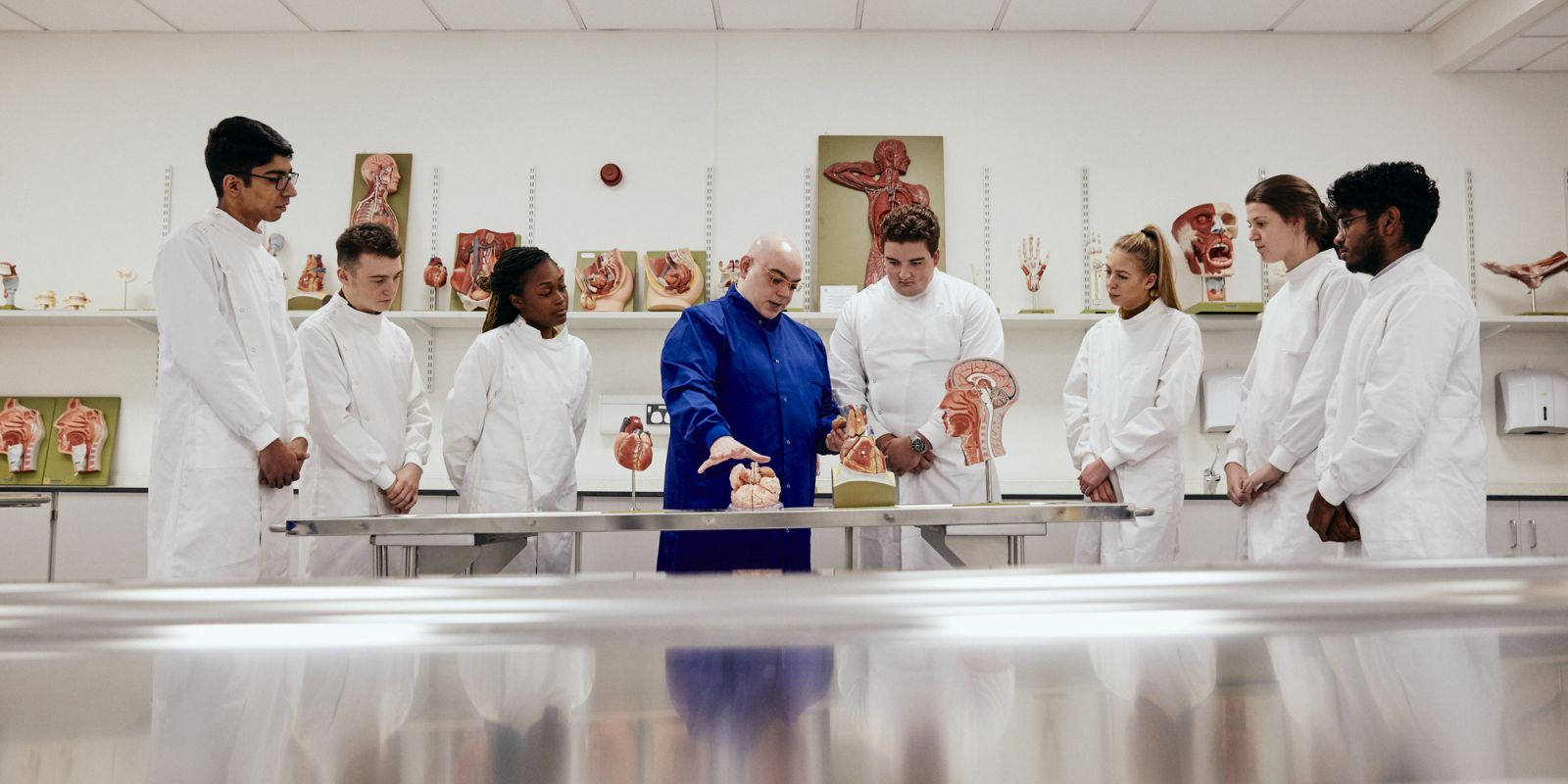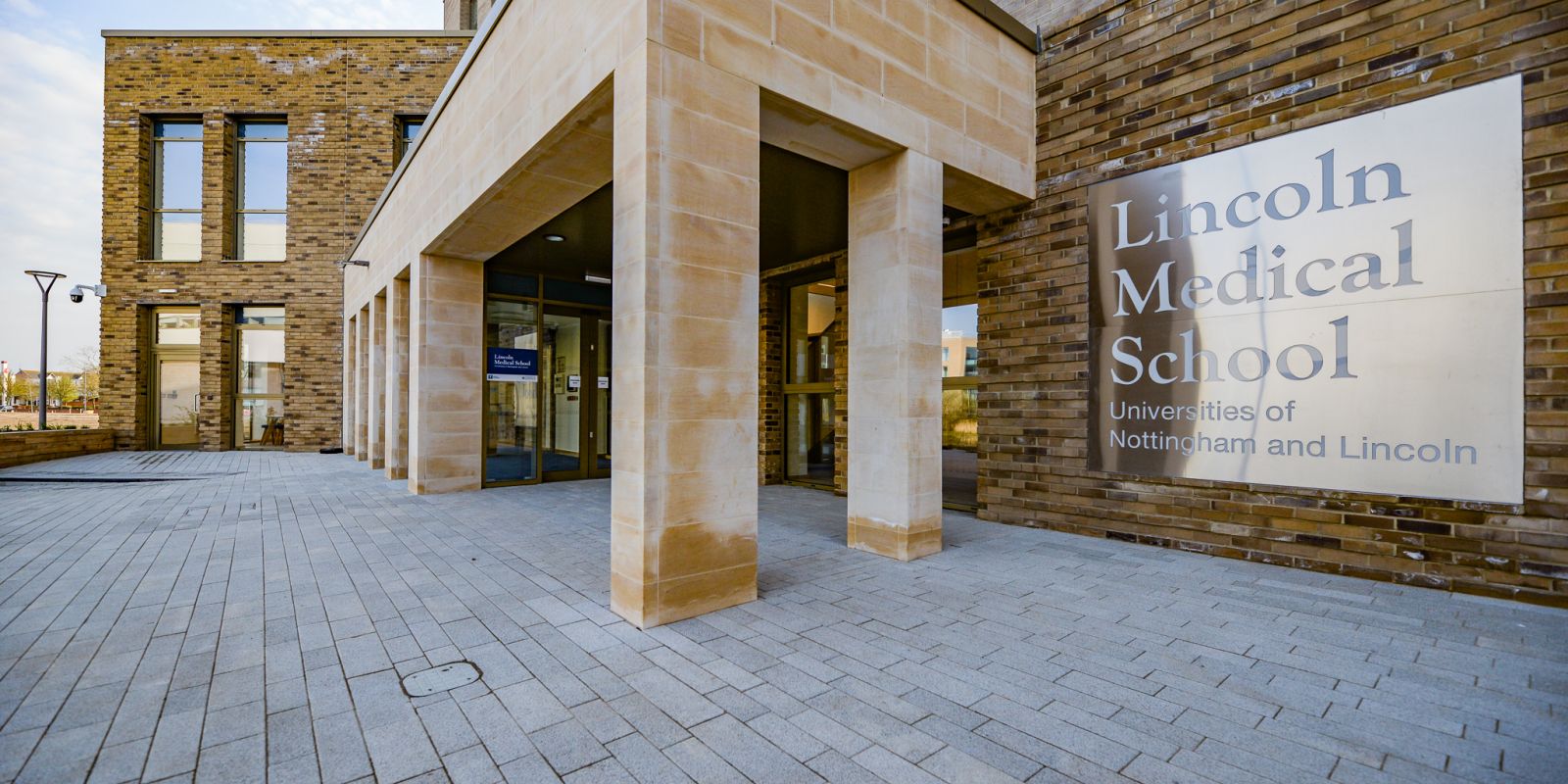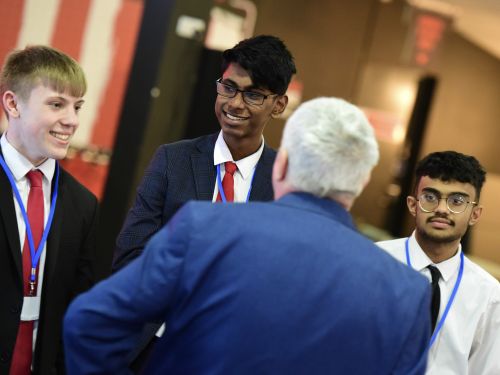Professor Danny McLaughlin is Associate Dean of Medicine at the University of Lincoln, where he leads on all aspects of the BMedSci and BMBS curricula. Danny’s teaching expertise is in physiology, neuroscience, neuroanatomy and pharmacology and his scholarly interests include the development of clinical reasoning skills in undergraduate medical students, the impact of widening broader participation initiatives in medical and higher education, and novel methods for teaching medical students. Danny leads on the new Lincoln Medical School, a joint project with the University of Nottingham School of Medicine, in partnership with the Greater Lincolnshire LEP.
July 2021 marks the end of the second year of activity for the Lincoln Medical School (LMS). I think it’s fair to say that we have had a challenging year, trying to deliver medical education during a global pandemic, but that has not prevented us from making further progress towards our aim of providing the skilled workforce that the NHS within Lincolnshire needs, and addressing chronic specialist shortages in Lincolnshire.
LMS was established with the specific aim of improving the recruitment and retention of doctors to Lincolnshire. Students now have access to specialist teaching facilities incorporating lecture theatres, laboratories, a clinical skills suite with consultation rooms, a prosection anatomy suite, and a biomedical and health sciences library.
The brand new purpose-built LMS building was completed in March 2021 built across five storeys, encompassed within a highly sustainable and environmentally friendly building. Links with the newly formed Lincoln International Institute for Rural Health (LIIRH) and the National Centre for Rural Health and Care can enable the delivery of leading-edge research ‘from bench to bedside’, ensuring that Greater Lincolnshire benefits from the skills and innovation injection it requires to meet the health and care challenges of the future.
Within the LMS, the Biomedical and Health Sciences Library brings together the university’s collections covering medicine, life sciences, pharmacy, chemistry, nursing, and allied health and social care. As part of the collaborative approach to teaching medicine offered here, students are able to access the combined information resources (e-books, books, journals, and databases) provided by both the University of Lincoln and the University of Nottingham and has its own dedicated staff, supporting students and staff across all the disciplines covered by biomedicine and health sciences.
Our teaching and learning methods used on the medicine programmes take many different forms. Examples of these include anatomy sessions, case-based learning, clinical relevance sessions, clinical skills sessions, eLearning, lab sessions, lectures, placements, practical classes, self-study, seminars, and tutorials. For example, when our teaching activities are not affected by Covid-19, our 'Drugs in the Eye’ practical session involves the use of topically administered drugs to the eye to investigate their effect on smooth muscle, enabling students to gain a greater understanding of the autonomic nervous system.
Students are taught anatomy through prosection in the new Anatomy Suite. The Lincoln Medical School also has a comprehensive collection of models of human body parts as well as bones which are used for teaching purposes, with a significant emphasis placed on surface anatomy education. Surface anatomy is the ability to relate human internal body parts to the surface of the body and is a vital part of anatomy education. There is also a host of online learning materials such as radiological imaging and videos that are used to enhance the learning of anatomy.
Feedback from our students continues to be very positive, so we have every reason to believe that they will be keen to remain in the region for their postgraduate training from August 2024, bringing much-needed medical graduates to our under-doctored county. In addition, we have seen applications to study medicine at LMS increase to the point where we have approximately 10 applicants for every place on offer.
Another key aim of the LMS is to drive innovation, transforming education and industrial partnership in medical education – transforming not just the people but the whole health system and wider economic benefits. Working with colleagues across the university campus and from LIIRH (also based in the LMS building), the teams here are keen to collaborate further with external partners to develop innovative research into local problems with the potential for global reach.
I am proud to work with experienced colleagues from both universities and set out to provide an excellent learning experience and first-class medical education for our students.
Professor Danny McLaughlin
Associate Dean of Medicine, University of Lincoln
If you would like to make contact with the Lincoln Medical School, please email medicine@lincoln.ac.uk or visit the LMS here.



